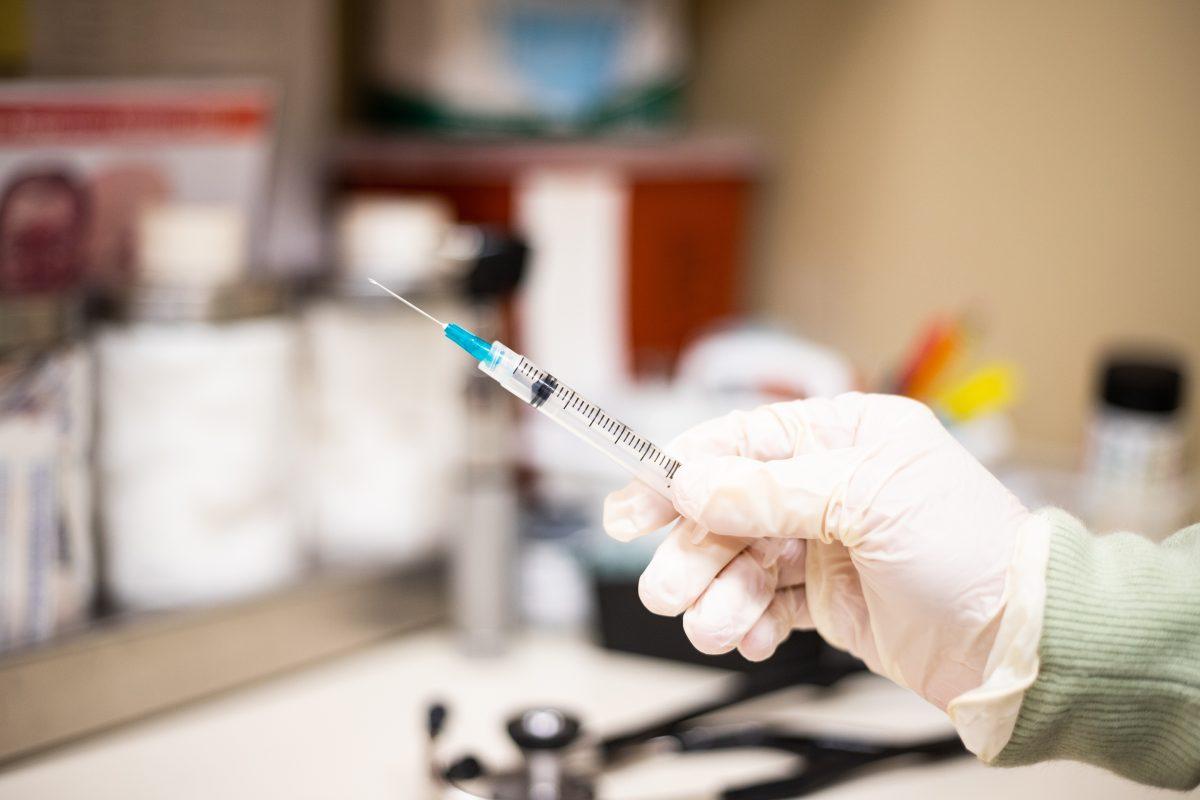St. Joe’s vaccination policy minimizing effect, not eliminating risk
St. Joe’s Student Health Center and the Philadelphia Department of Public Health have advised students on campus to take precautionary measures after an outbreak of mumps at nearby Temple University.
At the end of last month, right before the school’s spring break, Temple released a statement that there were four confirmed cases of mumps on campus. As of March 20, there have been 67 cases of mumps at Temple—12 confirmed and 55 probable cases, according to the Philadelphia Department of Public Health.
Although mumps cases were rare in the years following the introduction of the Mumps, Measles and Rubella (MMR) vaccine in 1971, a resurgence of outbreaks has occurred in recent years among vaccinated individuals.
Many of those 67 people at Temple had the MMR vaccine.
According to the Center for Disease Control (CDC), experts do not know exactly why vaccinated individuals still contract mumps They suspect it could have to do with the number of doses and the immune system not responding properly to the vaccine.
Dana Perella, program manager for the Acute Communicable Disease Program at the Philadelphia Department of Public Health, said even though someone may have the MMR vaccine, cases can still occur years after vaccination, and the disease appears frequently on college campuses.
“Mumps outbreaks can still occur, and in recent years, have been reported in settings like universities, where individuals have close, prolonged contact,” Perella said.
Although contracting mumps is possible even with vaccination, symptoms are not as severe or life-threatening if vaccinated. Those symptoms include fever, painful, swollen salivary glands and pain while chewing or swallowing. There is currently no treatment for mumps, but the immune systems of vaccinated individuals can fight off the virus in several days.
Nene Okunna, Ph.D., assistant professor of interdisciplinary health services and public health specialist, said the outbreak is a public health issue resulting from people not vaccinating their children out of fear that vaccinations cause autism— a connection that has been repeatedly disproved.
“The problem is if people don’t get vaccinated, then these diseases are spread across campus,” Okunna said. “This is a problem particularly on university campuses because we have a lot of people on one campus, so if one person gets it. That’s why it’s so concerning what we are seeing at Temple.”
St. Joe’s requires all incoming freshman and transfer students to have two doses of the MMR vaccine, as well as two Varicella, four Polio and four Tetanus/Diphtheria/ Pertussis with a booster within the past 10 years, according to Eileen Bevilacqua, director of the Student Health Center.
This is not the case at all universities. Some schools recommend rather than require vaccinations.
Until the mumps outbreak, this was the case at Temple.
“Temple did not have requirements for vaccine records other than meningitis, which is a federal law if a student lives in campus housing,” Bevilacqua said. “On their website, they state they will now require proof of MMR, Varicella and Tetanus/ Diphtheria/ Pertussis of all incoming students.”
Even though all St. Joe’s students are required to have the MMR vaccine, Bevilacqua and the Philadelphia Department of Public Health still advise students to take precautionary measures, such as washing their hands, not sharing utensils and staying away from infected individuals for five days.
“The SHC [Student Health Center] constantly discusses with students infection control measures such as washing your hands, coughing and sneezing into your sleeve and frequently wiping down surfaces that are touched regularly with a disinfectant wipe,” Bevilacqua said.
UPDATE: This article previously stated the number of cases as 54, with 12 confirmed and 42 probable cases on March 18. As of March 20, the number of cases has increased to 67, with 12 confirmed and 55 probable cases. The article has been updated to reflect this information.
















































